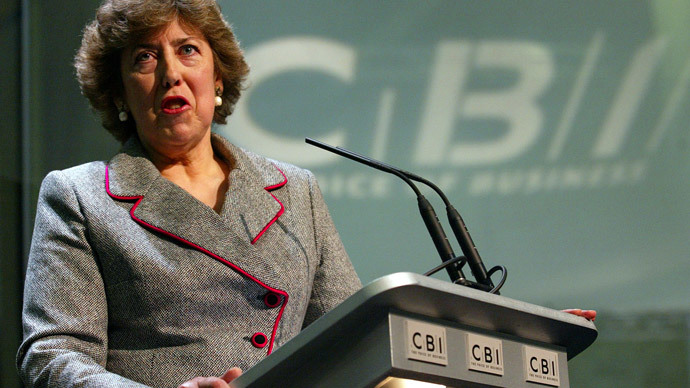Anti-terror bill could undermine academic freedom - ex-MI5 chief

A former British intelligence chief has warned that the government’s Counter Terrorism and Security Bill could restrict freedom of speech in universities.
Baroness Manningham-Buller said extremist opinions need to be “exposed, challenged and countered,” rather than banned.
Her comments follow a report by the Joint Committee on Human Rights earlier this month, which warned new counter-terrorism laws would “restrict” freedom of speech on university campuses.
Senior academics have called for a campaign against the bill, arguing it could turn university staff into “thought police.”
New legislation includes plans to make the government’s ‘Prevent’ strategy a statutory obligation for universities, meaning educational institutions would have a legal duty to ban speakers who are considered “extremist.”
Manningham-Buller’s spoke about the Counter-Terrorism and Security Bill during a debate at the House of Lords on Wednesday.
The former MI5 chief – who led the organization at the time of the 7/7 London bombings in 2005 – said Britons should not compromise their values in our fight against terrorism.
“It is a profound irony in seeking to protect our values against this pernicious ideology we are trying to bar views too vaguely described as non-violent extremism, which falls short of incitement to violence or to racial or ethnic hatred or the other legislative constraints on universities,” she said.

Her comments echo those made by Joint Committee on Human Rights earlier this month, which argued terms such as “extremist” are too ambiguous.
“Broad terms such as ‘extremist’ or ‘radical’ are not capable of being defined with sufficient precision to enable universities to know with sufficient certainty whether they risk being found to be in breach of the new duty.”
The committee also expressed concern “about the implications for both freedom of expression and academic freedom as a result of the applicability of the proposed new duty to universities.”
Under the bill, failure to comply with the Prevent strategy would result in direct intervention by the secretary of state and could end up in academic staff facing “criminal sanctions.”
Home Secretary Theresa May introduced the new anti-terror bill in November last year.
Speaking at the time, she said the country was engaged in a struggle which may go on for many years. “We must have the powers we need to defend ourselves,” she said.
READ MORE:'Thought police’: Academic freedom threatened by anti-terror bill, MPs warn
In 2011, May accused universities of being complacent towards the threat posed by extremism.
“I think for too long there's been complacency around universities. I don't think they have been sufficiently willing to recognize what can be happening on their campuses and the radicalization that can take place,” she told the Daily Telegraph.
Speaking in favor of the bill during Wednesday’s debate, Lord Bates said a third of people convicted of al-Qaeda-related terrorism offences between 1999 and 2009 had attended a higher education institution.
Bates, a junior minister in the Home Office, said: “Freedom of speech is not an absolute. The duty is to secure freedom of speech within the law.”
READ MORE:Abuse of procedure’: Lords try to sneak ‘Snooper’s Charter’ into bill
Labour peer Baroness Kennedy of The Shaws said the bill would create a “chilling effect” on academic freedom.
A leading lawyer and principal of Mansfield College, Oxford University, she said such an impact is “really something we should step back from.”
Writing in the Times Higher Education Supplement earlier this month, the former vice-chancellor of the University of Salford described the new bill as “draconian.”
Professor Martin Hall said the legislation could “be used against opponents of fracking, or animal rights activists, or anti-nuclear movements, or any radical opposition to the status quo.”
“There is a danger of us being turned into a thought police,” he said.












